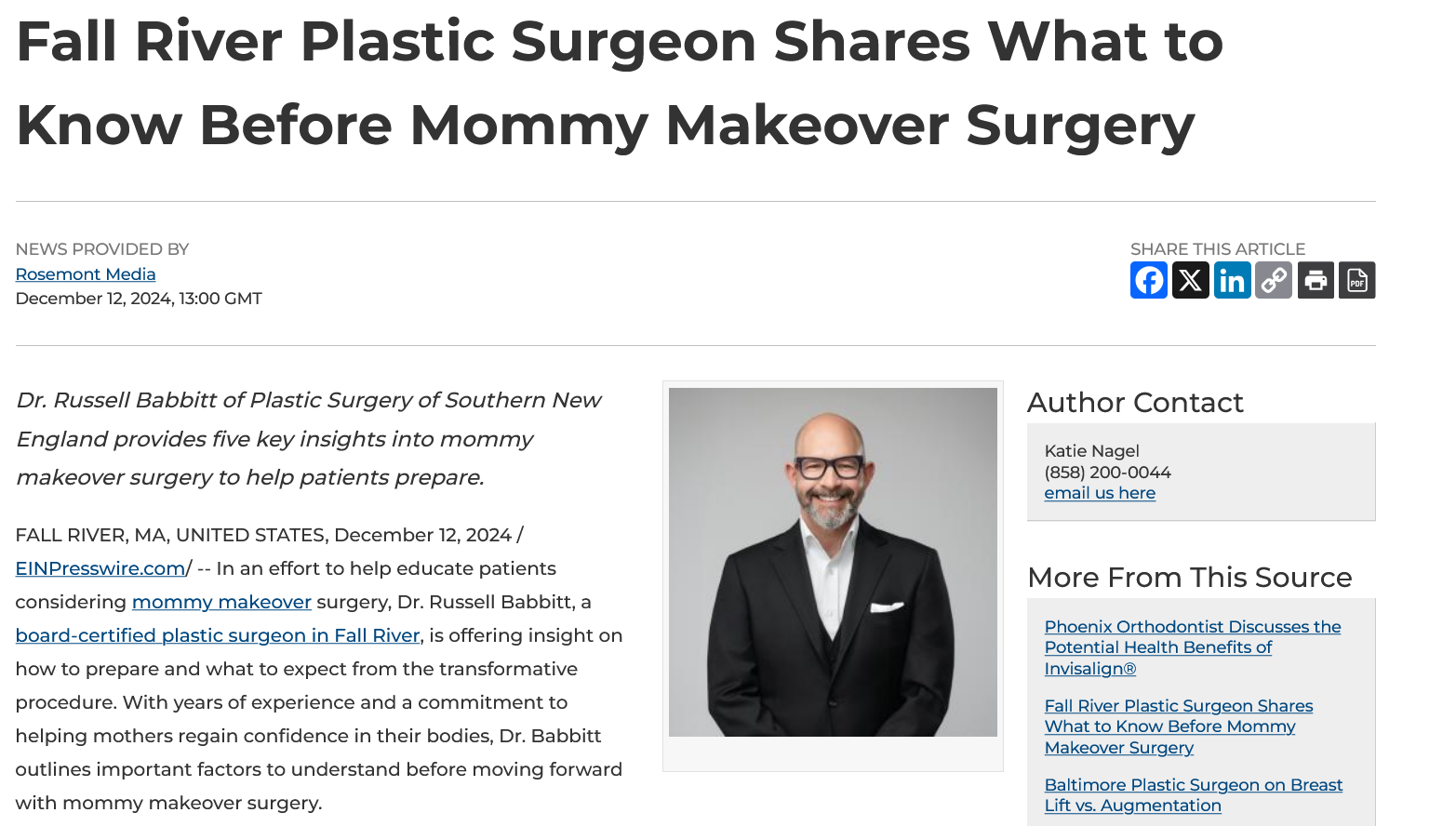Breast Revision & Implant Removal
Breast implant revision is a surgery to replace breast implants that were placed during a previous breast augmentation. Often referred to as implant exchange, this procedure can help patients unhappy with their results achieve a better outcome, as well as address potential complications they may be experiencing. While breast revision surgery often means replacing one’s breast implants, some patients may opt to remove their implants without replacement. Known as breast implant removal or explant surgery, this procedure has become increasingly popular, as many patients are choosing to go back to their natural breast size.
At Plastic Surgery of Southern New England, our board-certified plastic surgeon, Dr. Russell Babbitt, has helped numerous women achieve their ideal breast appearance through breast implant removal surgery with or without replacement. To learn more about these revisional procedures, feel free to browse through the information below.
What Are Common Reasons for Breast Revision Surgery?
The decision to undergo breast surgery is very personal, and there are many reasons why a patient may choose to move forward with an implant revision or removal. Wanting to alter or reverse the results of breast augmentation is actually very common. Some of the most common reasons patients tend to seek breast implant removal with or without replacement include:
- Being unhappy with the outcome of a previous breast augmentation and wanting to alter their results, such as improving symmetry
- Wanting to exchange their breast implants for a different size or type, such as going from saline to silicone implants
- Experiencing a complication, like implant malposition, rupture, or capsular contracture
- Feeling symptoms of a possible breast implant illness (BII)
- Having concerns of breast implant-associated anaplastic large cell lymphoma (BIA-ALCL)
- No longer wanting breast implants and wishing to return to their natural breast size
In addition, some patients simply need to replace older implants with newer ones. This is because breast implants are not lifetime devices, and they should be replaced every 10 to 15 years on average. Around this time, the risk of rippling, rupture, and leaking becomes higher due to wear on the implants’ outer silicone shell. If you have had your breast implants for several years, you may be a candidate for breast revision surgery.
What Does the Breast Implant Removal Procedure Involve?
Breast implants can typically be removed through the same incisions they were originally placed through. Dr. Babbitt will likely perform a total capsulectomy, which involves surgical removal of each breast implant and the capsule of scar tissue that surrounds it. For those exchanging their implants, the new implants can be placed through the same incisions, and any further adjustments can be performed at the same time. If you are not replacing your breast implants, an additional breast lift may be recommended to address any lax skin left behind.
For those suffering from symptoms of breast implant illness (BII) — a condition some patients believe is caused by their breast implants — some surgeons may recommend an en bloc capsulectomy, which involves removing the entire scar tissue capsule and implant in one piece. However, recent research has shown that most patients with BII see an improvement in their symptoms despite the type of capsulectomy performed. For this reason, Dr. Babbitt typically advises against the en bloc capsulectomy, as he finds the technique to be excessive and puts the patient at a higher risk. He can talk with you in more detail during your consultation to help you understand the pros and cons of your breast implant removal options.

What Can I Expect After My Breast Implant Revision?
The recovery from breast revision surgery is often shorter and less painful than the original breast augmentation procedure, but this will vary for each patient based on the details of their surgical plan. Most patients need two to three days of downtime after their surgery, at which point many feel comfortable enough to return to work in an office setting. Dr. Babbitt encourages patients to return to light walking as soon as they feel ready after surgery, typically within 24 hours of their procedure.
You may feel sore and have some degree of swelling and bruising during your recovery, but these should quickly start to fade as your body heals. Pain can typically be well-managed with pain medication. To help facilitate the healing process and manage swelling, you may be advised to wear a special compression garment. Our team will provide you with more detailed post-operative care instructions before your breast surgery to help you prepare. If you have questions or concerns at any point in your recovery, we encourage you to reach out to our team.
How Much Does Breast Implant Removal Cost?
The total cost of breast implant removal surgery can range from $4,000 to $17,000 for the surgeon’s fee, but this will depend on the complexity of the case. If you are getting your implants replaced, this will likely add to the final amount you can expect to pay. A number of factors will influence your cost, including the following:
- Expertise of the plastic surgeon
- Geographic location of the practice
- Medical tests and X-rays needed prior to surgery
- Associated fees, such as anesthesia and surgical facility costs
Following your personal consultation with Dr. Babbitt, our team can provide you with a personalized quote to help you budget for your breast implant removal procedure.
Schedule Your Breast Implant Revision Consultation
To learn more about replacing or removing your breast implants, please contact our team at Plastic Surgery of Southern New England to schedule your consultation with Dr. Babbitt.









